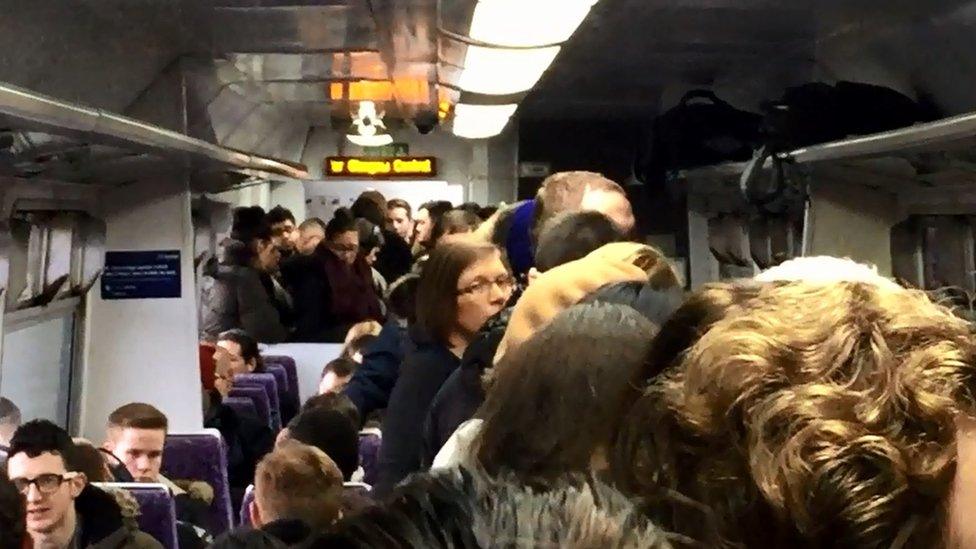ScotRail pledges 'faster journeys and more seats' with new timetable
- Published
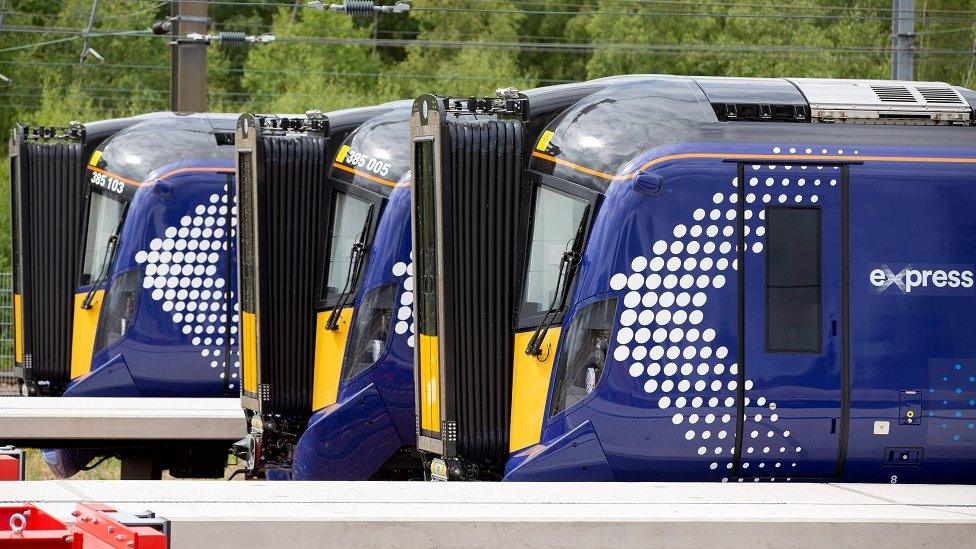
The new class 385 electric trains will be used for all Edinburgh-Glasgow via Falkirk High services
ScotRail has set out major changes to its timetables which take effect in December.
The rail operator has promised faster journey times, more services and more seats for passengers.
It said the "enhancement" of its services was as a result of the introduction of new high-speed and electric trains and further electrification of the lines.
ScotRail previously faced criticism for rush-hour overcrowding on some routes.
Alex Hynes, ScotRail Alliance managing director, said: "The improvements we are making to our timetable from December mean ScotRail has reached another milestone as we build the best railway Scotland has ever had.
"This is just the first phase of the work we are doing to deliver for our customers over the next year.
"The investment the ScotRail Alliance is making to electrify more lines and introduce new and upgraded trains means we will deliver faster journeys, more seats, and more services for our customers."
Mr Hynes told BBC Scotland: "As we've seen on the Edinburgh-Glasgow electrification, once we introduce our brand new Hitachi trains customers absolutely love them."

The details:
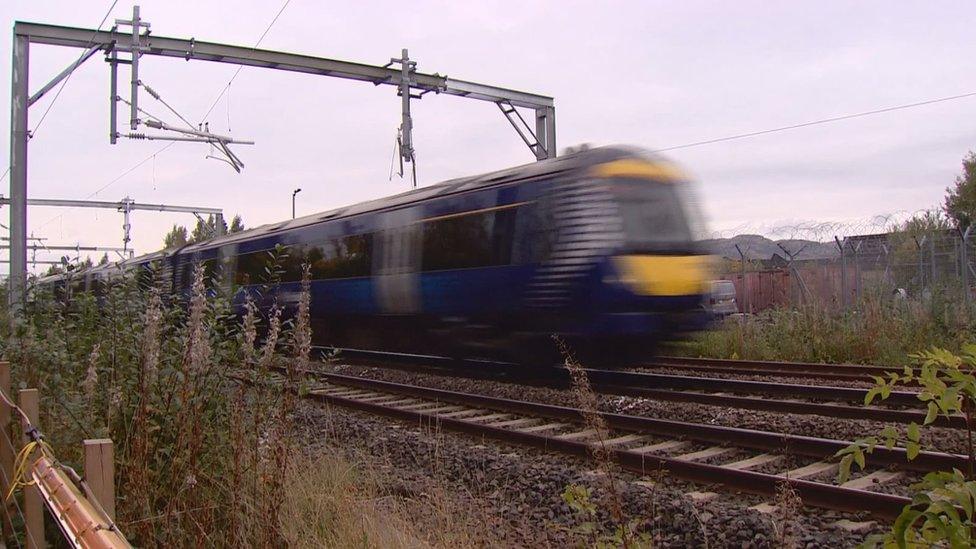
ScotRail said the new trains and further electrification of the lines would "improve the passenger experience"
Faster journey times
Edinburgh and Glasgow (via Falkirk High) reduced from 51 to 47 minutes.
Stirling to Edinburgh services reduced by more than five minutes.
Glasgow - Stirling/Alloa/Dunblane services reduced by up to five minutes.
Rail journeys in key locations to be considerably faster than car journeys.
More services
New half hourly Edinburgh to Glasgow service (via Cumbernauld and Falkirk Grahamston)
Extended Edinburgh to Arbroath services, providing close to an hourly local service for Broughty Ferry, Monifieth, and Carnoustie.
New hourly Aberdeen to Montrose service, providing a minimum of an hourly service at Laurencekirk, Stonehaven, and Portlethen.
Nine additional services between Inverness and Elgin, giving close to an hourly all-day service for Nairn, Forres and Elgin.
More seats
Class 385 electric trains on all Edinburgh-Glasgow via Falkirk High services.
Class 385 electric trains introduced on Glasgow Queen Street to Alloa and Dunblane services.
Class 365 electric trains on Edinburgh to Dunblane services.
Half of North Berwick to Edinburgh services will have 6 carriages.
Glasgow Central to Neilston services increased from 3 to 4 carriages.
Most Airdrie to Balloch services will now have 6 carriages.
Further timetable improvements will be delivered in May and December 2019.

The first new class 385 electric trains began running in July this year.
The Hitachi trains - which are said to be "light, spacious and modern" - were meant to come into service in March.
Their introduction was delayed after drivers raised concerns about the design of their windscreens. ScotRail has said it is now satisfied that the trains are safe.
The train firm ordered 46 three-carriage and 24 four-carriage sets of the 385 trains from manufacturer Hitachi as part of its £475m investment in rolling stock.
The delay to the introduction of the electric trains caused serious disruption to many passengers, after ScotRail had to cut the number of carriages on some of its services through the central belt.
Transport Secretary Michael Matheson welcomed the newly announced timetable improvements.
He added: "The amendments will see more of the existing refurbished fleets cascaded across the country meaning better trains, more seats and more services, delivering an improved experience for passengers."
Prof Tom Rye from the Transport Research Institute at Edinburgh Napier University welcomed the faster journey times and additional services but said the costs involved in improving the rail network were "huge".
"It's very good news for the passengers," he said.
"But the question we need to ask is - in terms of Scotland's transport system overall - what does this cost us and what does it contribute?
"Because Scotland's railway is essentially a public railway - it's the largest single contract that is let by the Scottish government. It's about £700m a year and the number of people it actually carries in comparison to the whole transport system is really, rather small.
"These increases in capacity comes at huge cost and we have to ask ourselves - are we getting value for money?"

Fresh delay to new Caledonian Sleeper trains
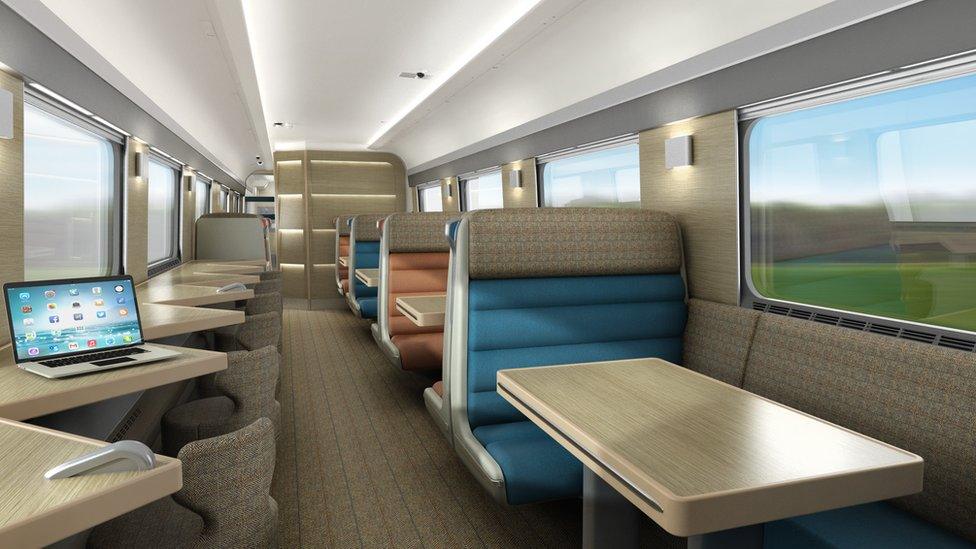
Images of what the new sleeper trains will look like were released last year
In a separate rail story, it has been confirmed there is a fresh delay to the introduction of new carriages on the Caledonian Sleeper service between Scotland and London.
A new fleet of 75 carriages is currently being built as part of a £150m upgrade of the overnight service.
They were meant to be introduced in the spring - but that was delayed.
The train operator Serco has now said they will not be in place until next May.
It said the process of testing and gaining the necessary regulatory and operating approvals was "time-consuming and complex".
Ryan Flaherty, Serco's managing director at Caledonian Sleeper, said: "We are sorry that we will not be able to launch the service this autumn, and understand that customers who wanted to travel on them in 2018 will be disappointed.
"But with five different accommodation types, as well as onboard catering, dining and shower facilities, this is the most complex introduction of new rolling stock ever undertaken in the UK, and we are determined to get it right."
The Scottish government has demanded to know exactly when the new rolling stock will be ready.
In a letter to Serco, Transport Secretary Michael Matheson, described the late delivery of the trains as "disappointing" and said he would like "full assurance on dates when we can expect to see new trains".
- Published18 August 2018
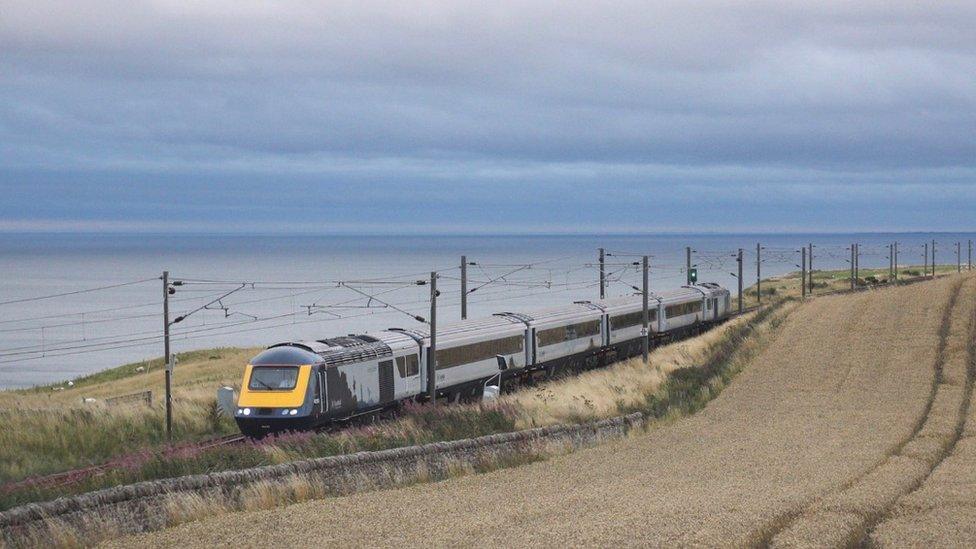
- Published24 July 2018
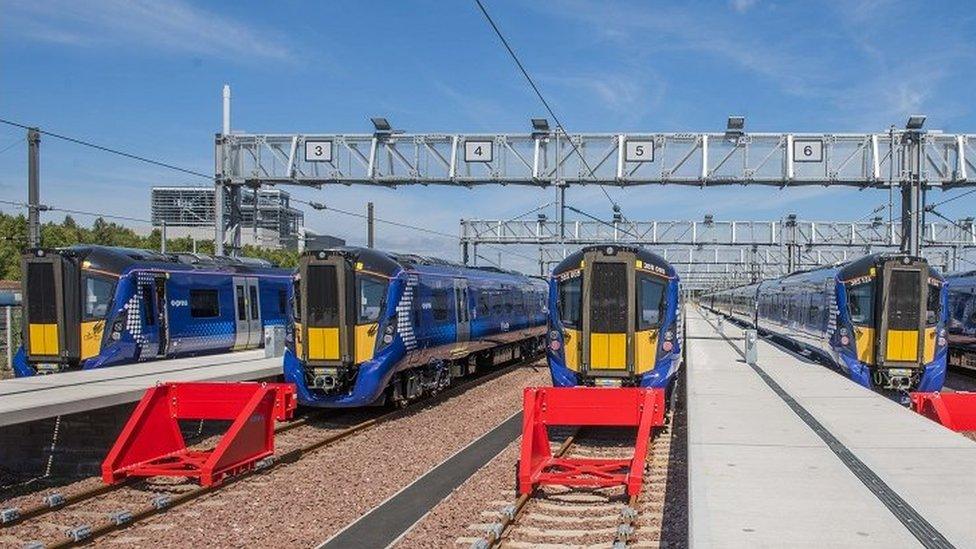
- Published26 February 2018
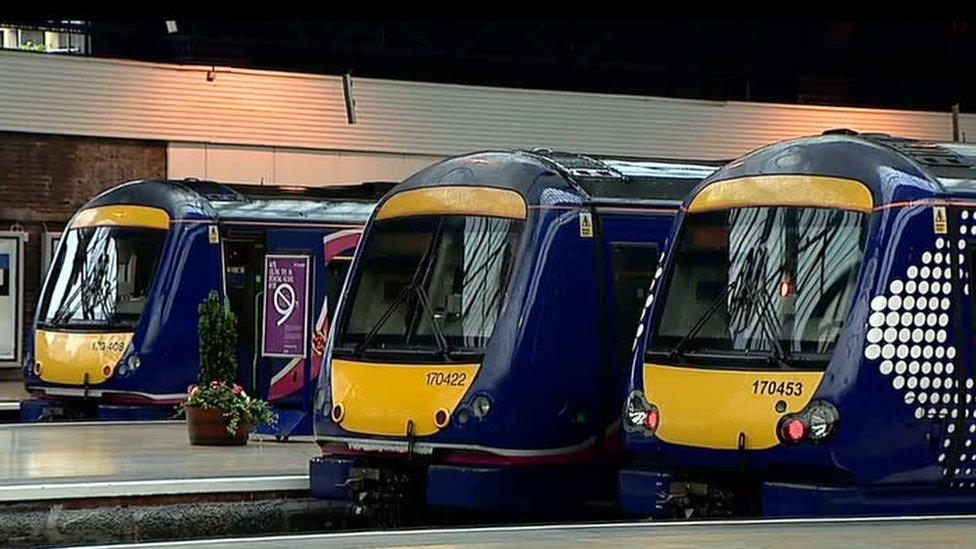
- Published26 February 2018
